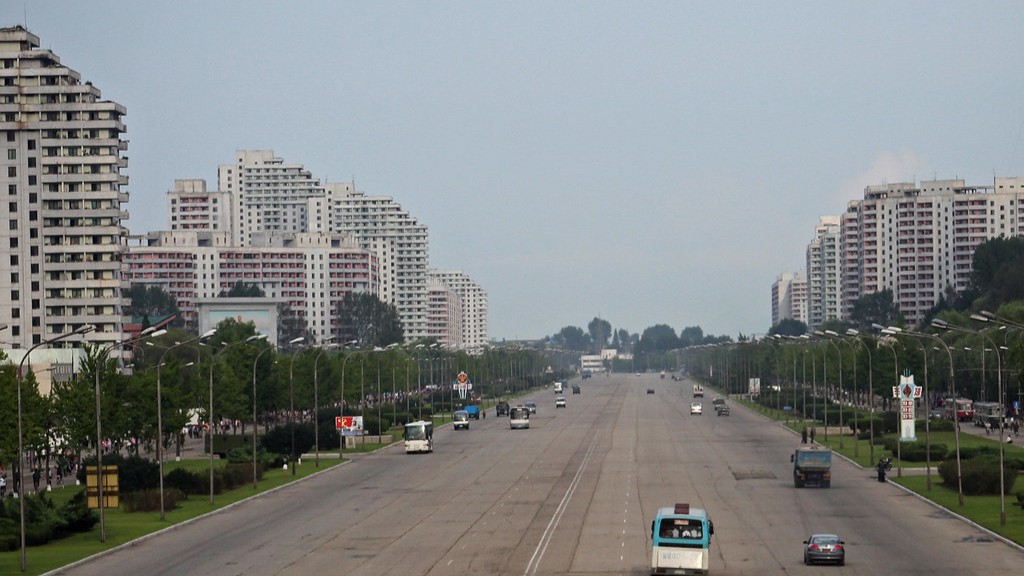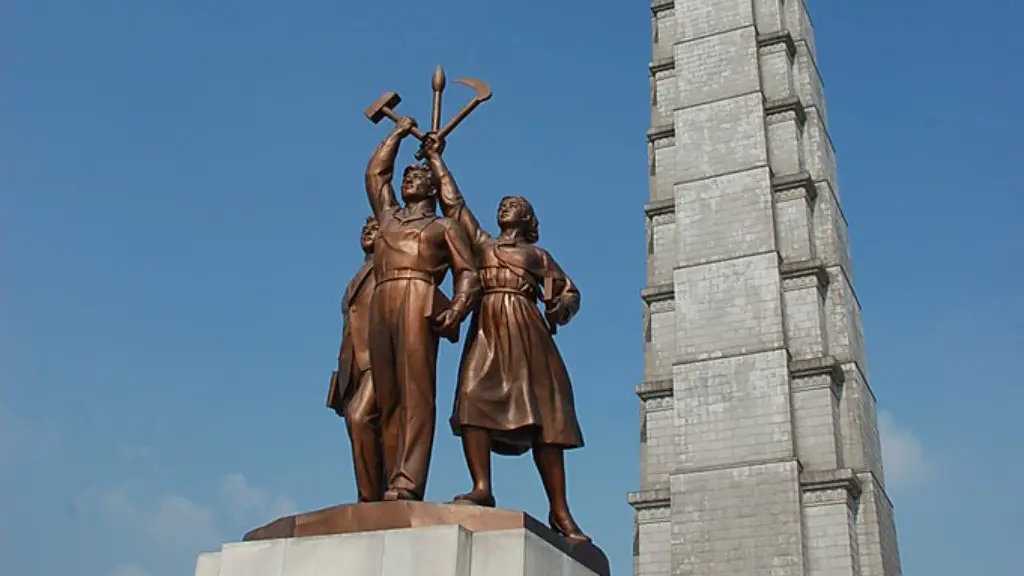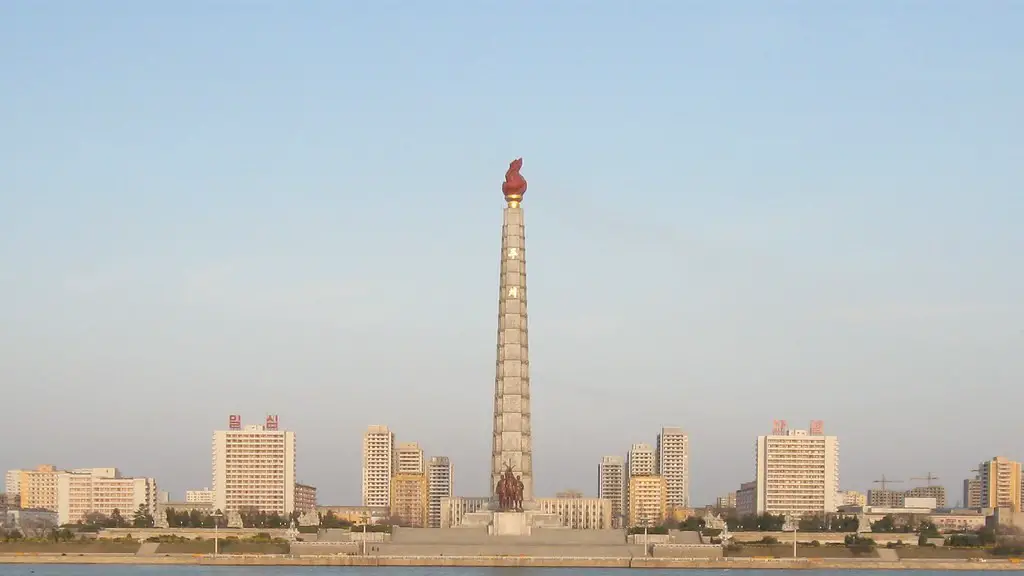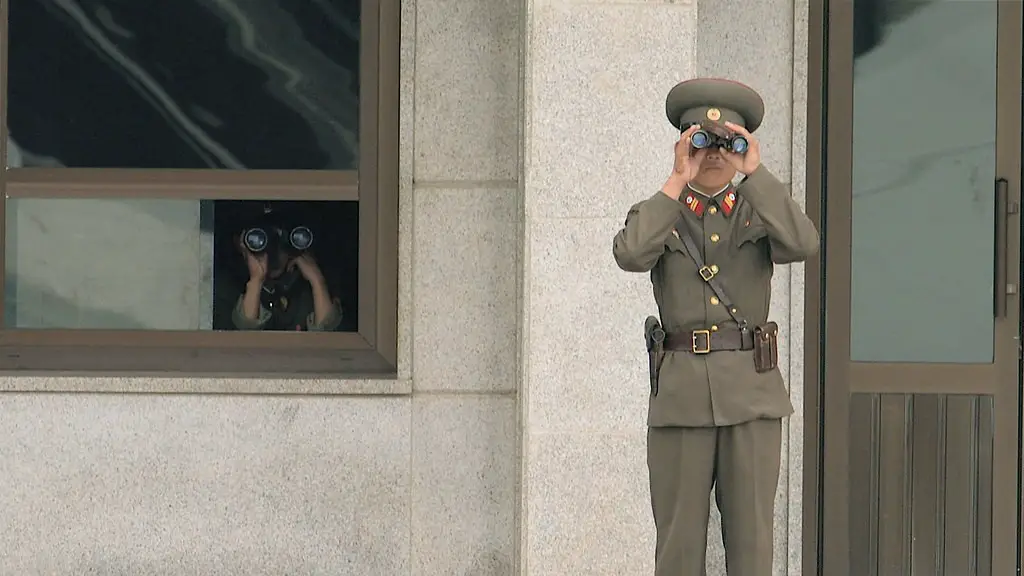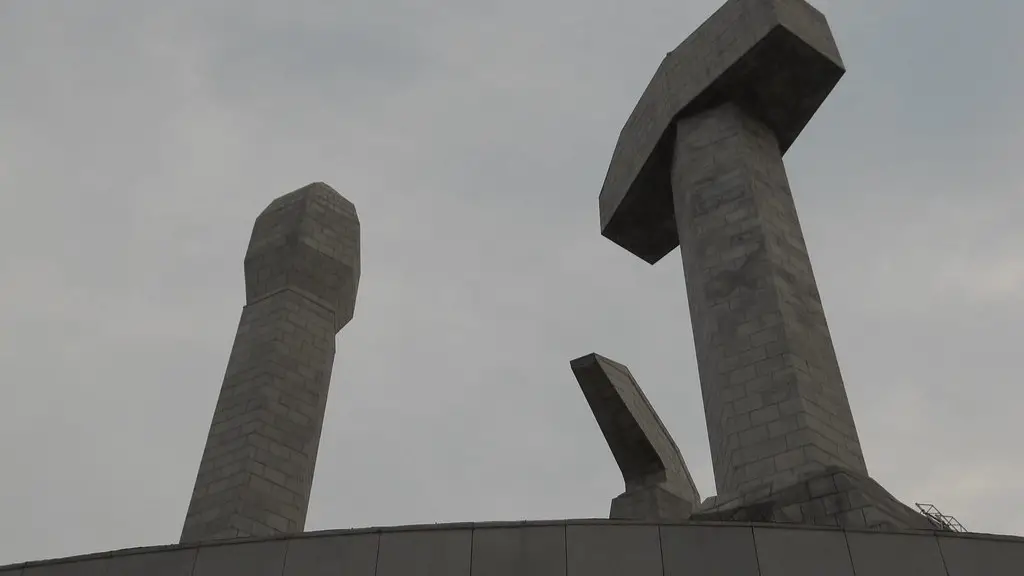North Korea has been divided for about 75 years, since the end of World War II when Japan was defeated by the Allied powers. After the surrender of Japan on August 15, 1945, Korea was divided at the 38th parallel. This created two separate occupation zones, one in the north and one in the south. The occupation zones were patrolled by different United States and Soviet Union military forces. This is known as the Korean War, which lasted from 1950-1953 and resulted in the establishment of the two sovereign states of North and South Korea.
The previous Korean Empire, which unified all of the Korean peninsula, had been in existence since October 1897. But it became increasingly strained under Japanese rule, which began in 1910. After WWII, North Korea and South Korea were both occupied by the U.S. and Soviet Union. The plan was to eventually reunite the two countries, but this was never realized. Instead, tensions rose between the two sides and military hostilities began, culminating with the Korean War in 1950.
The Korean War, which is also known as the Forgotten War, saw heavy casualties. An estimated 4 million people died, an estimated 2.5 million of them in South Korea. Over the course of the war, both sides made territorial gains, only to have them reversed by the other side. In 1953, an armistice was signed, ending the conflict and creating a de facto border between the two Koreas, the 38th parallel.
After the war, North Korea continued to be ruled by the authoritarian rule of Kim Il Sung, who was in power from 1948 until his death in 1994. Under his rule, North Korea became increasingly isolated from the rest of the world and maintained a policy of self-reliance. However, it also pursued nuclear weapons, despite international condemnation and UN sanctions.
Today, North and South Korea remain divided, with the demilitarized zone (DMZ) serving as a de facto border. South Korea is a vibrant democracy, while North Korea remains one of the most isolated and oppressive regimes in the world. And while North and South Korea have made efforts to increase cooperation and dialogue in recent years, the potential for military conflict still looms.
Economic Legacy
The long-term effects of the Korean War and the subsequent division of the Korean Peninsula are still being felt. Of particular note is the stark economic disparity between North and South Korea. North Korea’s economy is heavily reliant on foreign aid, while South Korea is the world’s 11th largest economy. In the decades since the Korean War, South Korea has experienced one of the most spectacular economic growth stories in modern history, becoming one of the most developed countries in Asia.
North Korea, meanwhile, is one of the world’s poorest countries. It has faced numerous economic sanctions from the international community, due to its nuclear weapons program. This has only exacerbated the economic divide between North and South Korea, as well as the differences in living standards between the two countries.
This has created a culture of resentment and mistrust between the two countries. Despite efforts to improve inter-Korean relations and to make progress on the reunification process, there is still a long way to go to bridge the economic, political and social divide between North and South Korea.
Cultural Implications
The cultural implications of the Korean War and the subsequent division of the Korean Peninsula have been far-reaching. This has particularly been true within North Korea, which has long maintained an isolationist, closed-door policy. The Pyongyang regime has strictly controlled access to information, restricted freedom of movement, and enforced a rigid ideological system on its population.
In South Korea, meanwhile, the legacy of the Korean War has been more ambivalent. On one hand, the war ended the Japanese colonial rule of the Korean Peninsula, allowing South Koreans to pursue their own economic and political development. But on the other hand, the war left South Koreans divided from their own family and culture, and with a sense of longing for reunification.
This longing for reunification is something that many South Koreans still feel today. It is reflected in the numerous South Korean activists and human rights campaigners who work tirelessly to promote inter-Korean dialogue and reconciliation. It is also reflected in popular culture, with books, films and TV dramas exploring the theme of the tragedy of the Korean War and its burden on the Korean people.
International Impact
The Korean War and the continued division of the Korean Peninsula has had an impact far beyond the Korean Peninsula itself. The war marked the first major confrontation between the United States and its Cold War adversary, the Soviet Union, leading to a rapid escalation of tensions in the region and beyond. This led to a furthering of the Cold War and a strengthening of the US-Soviet rivalry, particularly in Asia and the Pacific.
In addition, the Korean War has been used as a pretext for other countries to pursue their own geopolitical agendas. China and Japan, for instance, both used the war to further their own objectives in the region. And in recent years, other countries such as the United States, Russia, and China have used the Korean Peninsula as a diplomatic bargaining chip in their ongoing geopolitical struggles.
The legacy of the Korean War is still very much with us. The war ended in 1953, but for many people in Korea, the wound of division still feels raw. As such, the reunification of the Korean people remains a dream shared by many South and North Koreans alike.
United Nations Involvement
Since the Korean War, the United Nations has played an active role in trying to bring peace to the Korean Peninsula. After the armistice of 1953, the UN initiated a series of talks to further peace and reconciliation between the two Koreas. The UN also helps to support humanitarian aid efforts in North Korea, as well as monitoring nuclear proliferation and encouraging inter-Korean dialogue.
The UN has also passed multiple resolutions calling for the peace and reunification of the Korean Peninsula. These resolutions include the 2000 Joint Declaration, which reaffirmed the commitment of the two Koreas to the eventual peaceful reunification of the country, and the 2018 Panmunjom Declaration, which provided the framework for the two Koreas to work towards the realization of this vision.
Unfortunately, these initiatives have not led to much progress in terms of the reunification of the Korean Peninsula. Both North and South Korea remain far apart in terms of their respective political systems and ideologies, making it difficult for them to find common ground. As such, the reunification of the Korean Peninsula remains an elusive dream for many Koreans.
Potential for Reunification
Despite the ongoing tension and mistrust between North and South Korea, many experts still see potential for reunification. After all, Koreans are a homogeneous people and share the same cultural and historical heritage. In addition, the economic and technological advancements in South Korea have created an opportunity for more exchange and cooperation between the two Koreas.
The recent summit between North and South Korean leaders in April of 2018 is a sign of progress. The two sides agreed to move towards the peaceful reunification of the Korean Peninsula and established a number of working-level committees to help further this goal. This has led to a wave of optimism among many South Koreans, who see the summit as a sign that their long-held dream of reunification may finally become a reality.
However, the reality is that the Korean War and the subsequent division of the Korean Peninsula have created deep divisions between North and South Korea. These divisions cannot be easily undone and will require patience, understanding, and genuine dialogue. But there is still hope that one day, the Korean people will reunite, bringing an end to almost seven decades of separation.
Strategic Position
In recent years, the Korean Peninsula has become increasingly important for international security. On the one hand, it serves as a buffer zone between China, Japan and Russia, helping to contain the growing international tension in the region. On the other hand, it has become an important strategic vantage point for the US, as tensions with North Korea have grown over its nuclear program.
North Korea’s possession of nuclear weapons has turned the Korean Peninsula into a regional and global hot-spot. It has also made it a priority security issue for the United States and its allies, Japan and South Korea. As such, the potential for nuclear conflict is still very much a reality, further highlighting the need for a peaceful and lasting solution to the Korean conflict.
The fact that North Korea has now become a nuclear power makes the reunification of the Korean Peninsula even more difficult. North Korea has long seen its nuclear weapons program as a deterrent against a foreign invasion and, as such, is unlikely to give up its nuclear weapons anytime soon. This will likely add to the difficulty of achieving a lasting reunification of the Korean Peninsula.
Conclusion
The division of the Korean Peninsula has been a long and troubled history. It has had devastating consequences for the Korean people, who have been separated from their families and culture for nearly seven decades. It has also had far-reaching implications for the international community, with the Korean conflict becoming a key flashpoint in the US-Soviet rivalry and the ongoing tensions in the region.
Today, North and South Korea remain divided, with the potential for military conflict still ever-present. But there is also hope that the two Koreas may eventually reunite, bringing an end to the long-standing divisions and creating a more peaceful and prosperous future for the Korean Peninsula and the world.
